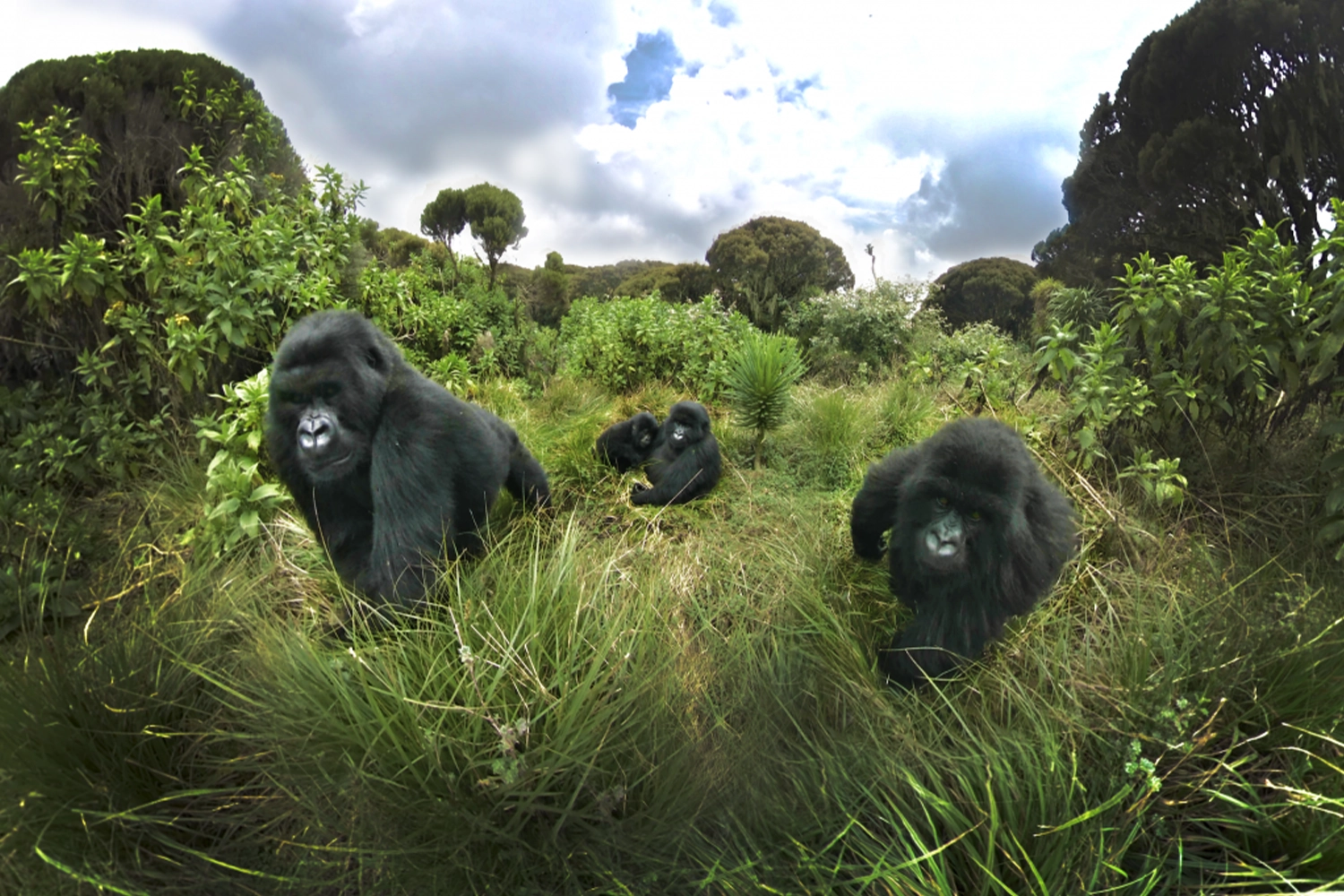
The Ultimate 3-Day Rwanda Safari Tour
Explore a thrilling 3-day adventure in Rwanda, starting from Kigali. You will journey to Volcanoes National Park, renowned for its mountain gorilla population....
Rwanda Safari Tour Packages offer an adventure of a lifetime. You will experience diverse wildlife, breathtaking landscapes, and vibrant cultures that make Rwanda unique. You will explore the majestic Volcanoes National Park, home to mountain gorillas, and the serene Akagera National Park, rich in biodiversity. You will also visit Nyungwe Forest National Park, known for its chimpanzees and canopy walk. These packages will ensure you have an unforgettable safari experience, providing all the necessary details to plan your perfect trip, from top destinations to essential travel tips.
Starting a safari in Rwanda offers an unparalleled adventure through lush landscapes and diverse ecosystems. You will witness the Big Five in their natural habitats, trek through dense forests to observe rare primates, and enjoy the rich tapestry of Rwandan culture through interactions with local communities. Each safari package is designed to provide a seamless and immersive experience, whether you are a seasoned traveler or a first-time visitor. With expert guides and carefully curated itineraries, your Rwandan safari will be a journey of discovery, excitement, and lasting memories.
The best time to Explore a Rwanda safari tour is during the dry seasons, from June to September and December to February. These periods provide optimal conditions for wildlife viewing, as animals gather around water sources and the vegetation is sparse, making them easier to spot. Additionally, the dry season is the best time for gorilla trekking in Volcanoes National Park, offering a unique opportunity to witness these magnificent creatures in their natural habitat.
Rwanda boasts numerous safari destinations. Volcanoes National Park is renowned for its population of mountain gorillas and golden monkeys. Akagera National Park offers stunning landscapes and is home to the Big Five, including lions, elephants, and rhinos. Nyungwe Forest National Park is famous for its primate population, including chimpanzees, and features one of the best canopy walks in Africa. Lake Kivu provides a serene setting with opportunities for bird watching and water activities.
Rwanda's diverse ecosystems support an incredible variety of wildlife. In Volcanoes National Park, you can expect to see mountain gorillas and golden monkeys. Akagera National Park is home to the Big Five: lions, leopards, elephants, buffalo, and rhinos. Other species include giraffes, zebras, hippos, and a wide array of birdlife. Each park and reserve offers a unique set of animals and landscapes, ensuring a varied and exciting safari experience.
Rwanda offers a range of accommodation options to suit all preferences and budgets. From luxury lodges and tented camps that provide an immersive and comfortable experience, to budget-friendly campsites that bring you closer to nature. Many accommodations are situated within or near national parks, offering stunning views and easy access to wildlife. Whether you prefer a luxurious stay or a more rustic experience, Rwanda's safari accommodations will enhance your adventure.
A Rwanda safari tour is not just about wildlife; it's also an opportunity to engage with the rich local cultures. You can visit local communities to learn about their traditional lifestyles and customs. The Iby’Iwacu Cultural Village near Volcanoes National Park offers a unique cultural experience where you can see traditional Rwandan dance, music, and crafts, and learn about the daily life of the local people.
To ensure a successful safari, it's essential to pack appropriately. Bring light clothing, sturdy footwear, and sun protection. Bringing binoculars and a good camera will enhance your wildlife viewing and photography experience. Hiring a knowledgeable guide will greatly enrich your safari, offering insights into animal behavior and the ecosystem. Additionally, maintaining a respectful distance from wildlife and following park regulations is crucial for safety and conservation.
While on safari in Rwanda, it's important to take health precautions. Malaria prophylaxis is recommended, as well as vaccinations for diseases such as yellow fever. Staying hydrated, using insect repellent, and following your guide’s advice will help ensure a safe and enjoyable trip. It's also advisable to have travel insurance that covers medical emergencies and evacuation.
Capturing the beauty of Rwanda's wildlife and landscapes requires some preparation. Bring a good quality camera with a zoom lens to photograph animals from a distance. Early morning and late afternoon offer the best lighting conditions for photography. Wildlife photography often involves patience and waiting for the perfect moment to capture the essence of the scene.
Rwanda safari tours usually last between 3 to 10 days, depending on the itinerary and the number of parks and reserves visited.
The cost varies depending on the duration, type of accommodation, and the parks included in the itinerary. On average, you can expect to pay between $1,500 to $6,000 per person.
The best time for a safari in Rwanda is during the dry seasons, from June to September and December to February, when wildlife viewing and gorilla trekking are optimal.
Rwanda is home to a wide variety of wildlife including the Big Five (lion, elephant, buffalo, leopard, and rhino) in Akagera National Park, as well as mountain gorillas, golden monkeys, chimpanzees, giraffes, zebras, hippos, and numerous bird species.
Pack light, breathable clothing in neutral colours, a wide-brimmed hat, sunglasses, sunscreen, insect repellent, binoculars, a camera, and comfortable walking shoes. Don’t forget any personal medications and travel documents.
Accommodations range from luxury lodges and tented camps to more budget-friendly options like campsites and mid-range lodges.
Most safari tours start from Kigali, with onward travel to the parks and reserves by road. Your tour operator will arrange all transportation.
Internet access is generally available but can be unreliable in the bush. It’s a good idea to prepare for limited connectivity.